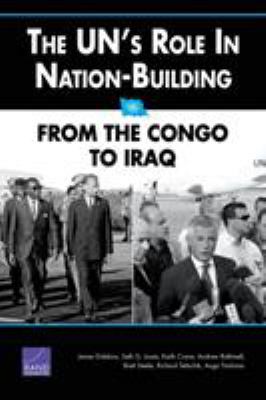
Book
|
The UN's role in nation-building : from the Congo to Iraq
Copies
3 Total copies, 3 Copies are in,
0 Copies are out.
Title
The UN's role in nation-building : from the Congo to Iraq
Call No
JZ4984.5
Authors
Subjects
Language
English
Published
Santa Monica, Calif. : RAND Corp., 2005.
Publication Desc
xliii 273 p. : ill., maps ;
ISBN
0833035894 (pbk. : alk. paper)
LCCN
2004027669
Dimensions
23 cm.
MLA
APA
Chicago
0
/
0








